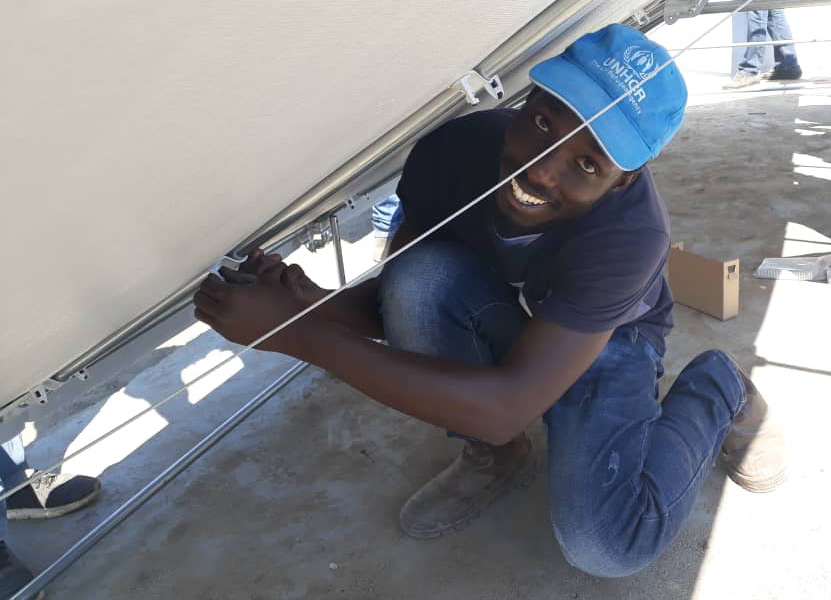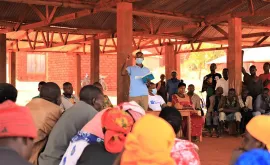UN Volunteer Gilbert Niyonkuru serves with the UN Development Programme (UNDP) in Burundi, attached to the Direct Social Action Programme. Kalle Silwimba has been a national UN Volunteer Civil Engineer with the UN Refugee Agency (UNHCR) in Zambia for almost three years now. Both volunteers are driven by a common goal: to end extreme poverty for the most vulnerable.
Based in Nyakazi, southern Burundi, Gilbert fulfils a critical community liaison role. He collaborates with local, administrative and judicial authorities across five districts to improve the inclusivity and accessibility of services. He also strengthens the capacity of civil registry and rural land registration agents.
Due to Nyakazi’s remote location in the southernmost part of Burundi, its population often lacks access to public information and essential services. This challenge is exacerbated by poverty and a lack of awareness on the part of local community members of their basic rights and responsibilities.
"Part of my work involves citizen education – informing citizens of their right to enjoy public services equally and equitably and access public information and civil documentation," Gilbert explains.
The work of Gilbert, like those of other community volunteers at UNDP Burundi, is often recognized by senior management at UNDP Burundi, particularly due to their close interaction with community members and local knowledge.
I am happy to say that due to my contribution to the project, several disadvantaged members of society have been able to obtain their civil status documents. Some have benefited from legal assistance, while others have received land ownership certificates for their properties. --Gilbert Niyonkuru, UN Volunteer with UNDP, Burundi

In Zambia, Luapula province is a region with a high poverty rate. It hosts the Mantapala refugee settlement, which is approximately 1,000 kilometers from the capital of the country. Relatively new, this settlement is lacking in basic human necessities and commodities that the refugees need. The road network is also bad, thus complicating access to basic services.
Kalle left a comfortable job as the Deputy Director of Public Works for Nalolo District Council in Zambia to volunteer with UNHCR in this refugee settlement. The opportunity to volunteer came just as Kalle had been promoted to director level; however, for him, the decision was easy. The volunteer assignment was a rare opportunity to serve those most in need — this was all the motivation he needed.
As a UN Volunteer, Kalle services over 17,000 persons of concern in the Mantapala refugee settlement, addressing urgent shelter, water, sanitation and hygiene challenges. In particular, he has led efforts to design community-driven strategies, ensuring inclusive approaches to securing access to basic services. He also regularly undertakes rapid needs assessments for local communities and works with partners to respond to identified shortcomings.
The greatest lesson I have learnt during my time as a volunteer is that when one is truly motivated to serve humanity, opportunities often open up that bring immeasurable satisfaction. --Kalle Silwimba, UN Volunteer with UNHCR, Zambia
As communities strive to shake off the shackles of COVID-19, volunteers like Gilbert and Kalle are helping vulnerable communities build forward better, by tackling stubborn discriminatory inequalities and placing human dignity at the centre of social progress.

